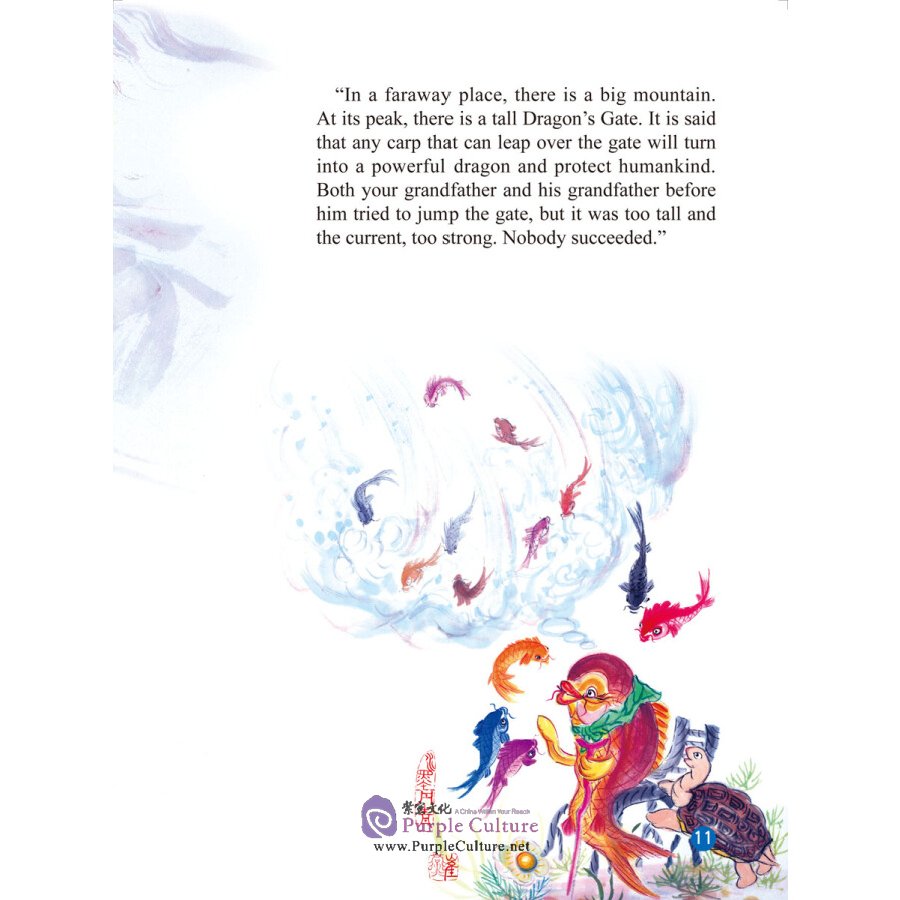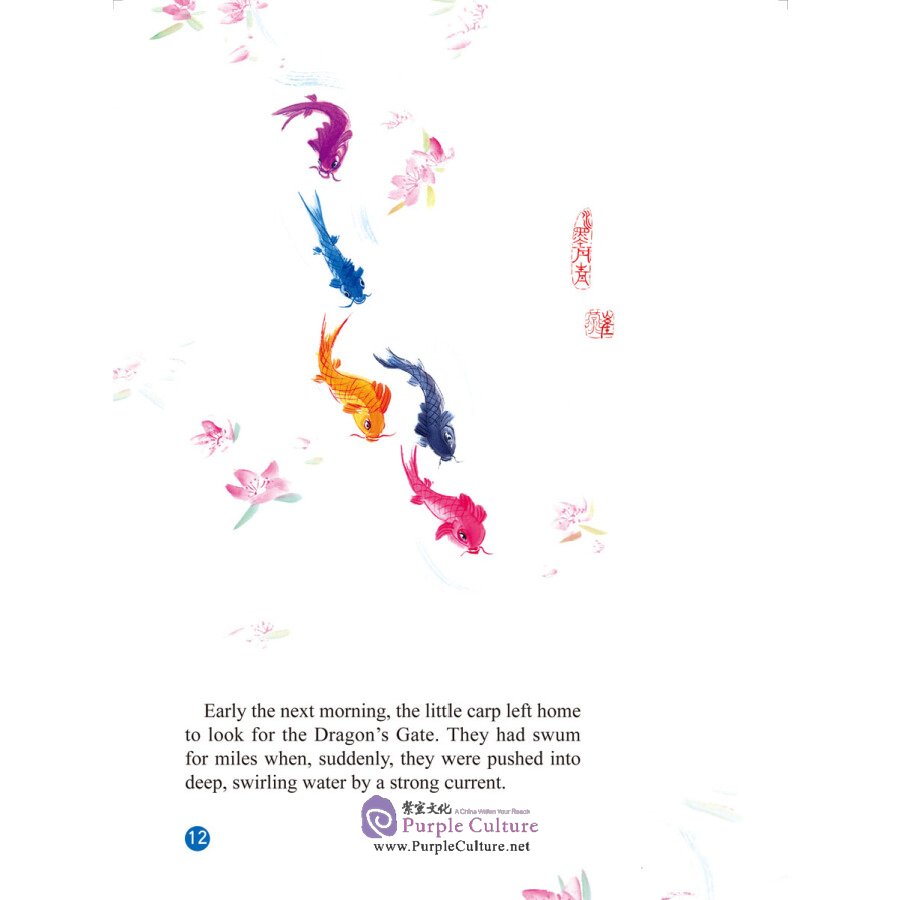The ink-and-wash painting technique is considered to be representative of traditional Chinese painting. Painters use a brush pen dipped in a mixture of ink and water, and paint on traditional paper. The basic ink-and-wash painting uses only water and ink, so there are only two colors, black and white. But more advanced ink-and-wash paintings like fine brushwork and bird-and-flower paintings use many colors. The ink is one of the most special elements in Chinese painting. Using different amounts of water, the ink can be diluted to varying gradations, from black to gray to white, a characteristic known as the “charm of ink”. This series of books portrays well-known Chinese children’s stories in traditional ink-and-wash paintings.
One day, Granny Carp gathers five little carp together to tell them a legend. On the top of a faraway mountain stood a Dragon’s Gate. Any carp that could leap over it would turn into a dragon that brought good luck to people. Dragons could ride on clouds and live in the sky. Inspired by the tale, the little carp leave home to look for the Dragon’s Gate. They overcome all kinds of hurdles on their way and, by helping each other, manage to leap over the gate and turn into lucky dragons.
About the Author
CUI YAN, born in Beijing in 1963, graduated from Beijing Normal University with a master’s degree in education. She learned traditional Chinese ink-and-wash painting from He Jinghan, a renowned Chinese landscape painter. Cui has undertaken art education and preschool education for over 30 years and is, therefore, incredibly experienced in these fields.

